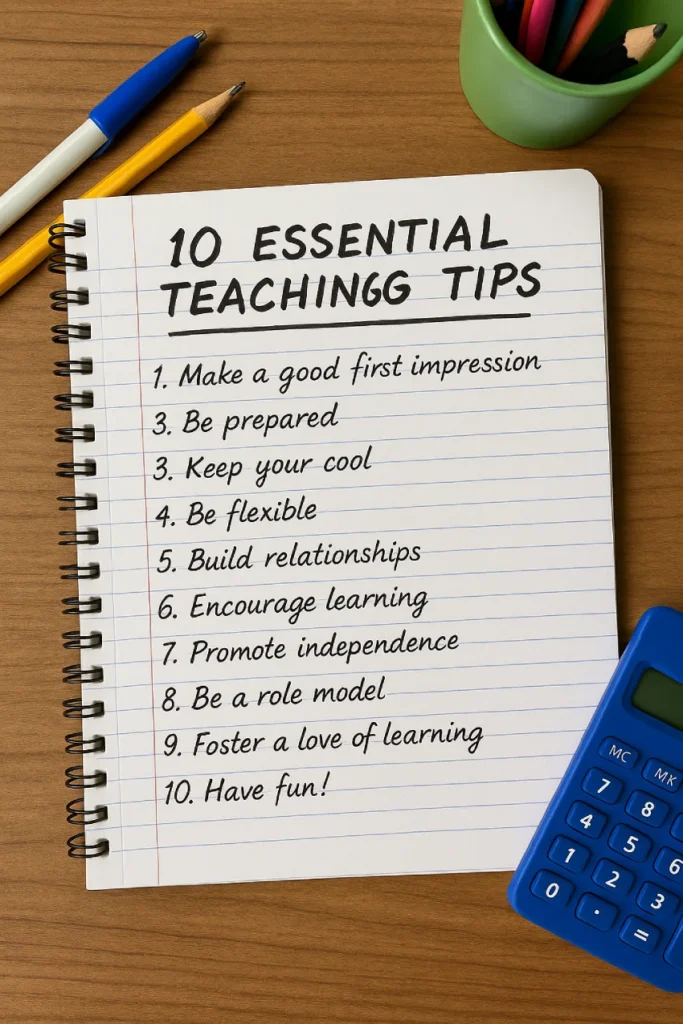Your career in teaching is about to begin because you’re seeking ideas on how to successfully become a new teacher. Okay, there might be a lot to master, but little by little, you’re getting ready for your first big teaching day—and you might want everything to run smoothly. You don’t want to mess anything up, and you’d love to impress your headmaster and do the part of your students as well. It isn’t impossible to make this transition easier and maintain great classroom culture with the right tips on the best school supplies.
Well, that could be true, but it may not happen as fast or as easily as you think. It takes time to gain the trust and respect of your students, understand your teaching methods, and learn what works best. Of course—preparation helps a lot: knowing where to get the proper teacher template for your classroom, planning lessons, understanding student behavior, and still remembering to breathe!
So here are essential teaching tips, shared by someone who’s been in your shoes and wants to make your start smoother and more confident.

Here are 10 essential teaching tips from someone who has seen it all
1. Make a good first impression
First impressions matter, but it’s worth mentioning that you only get one chance to make a first impression. So give it your all on the first day—dress professionally, walk in confidently, and greet your students warmly. Introduce yourself in a friendly tone, learn their names early, and set clear expectations for your class. A strong start sets the tone for the rest of the year.
2. Be prepared
Preparation is extremely important for any new teacher. To avoid feeling overwhelmed during your first weeks, gather all the necessary school supplies and teaching materials ahead of time. Plan your lessons in advance, prepare a backup activity, and keep essential items organized. This will not only boost your confidence but also ensure smooth learning for your students.
3. Keep your cool
It’s important to remain calm and collected at all times, even when things get challenging. Losing your temper may break the classroom atmosphere and discourage your students. If a mistake happens or a lesson plan doesn’t work out, stay patient and composed. Your students look to you for guidance—especially those who struggle to understand a concept.
4. Be flexible
No matter how well you plan, things will not always go the way you expect. A lesson might run too long, a group activity might fall short, or something unexpected may interrupt the schedule. Flexibility helps you adjust quickly and keep the class environment positive. Adaptation is one of the strongest skills a teacher can develop.
5. Build relationships
Creating positive relationships with your students is one of the most important things you can do as a teacher. This means showing that you genuinely care—listening to their concerns, encouraging conversation, and building an environment where students feel safe. Respect their individuality and allow them to express themselves. Strong relationships inspire stronger learning.
6. Encourage learning
Your students will learn better if they’re motivated. It’s your job to help them explore topics with curiosity rather than pressure. Make lessons fun, add creative activities, and encourage questions. Offer plenty of opportunities for discussion and reflection. A motivated student learns more—and remembers more.
7. Promote independence
One of your key responsibilities is to help students become independent learners. Encourage them to take responsibility for their tasks, manage their own time, and think critically. This not only builds confidence but also equips them with important life skills. Independence reduces distractions and enhances self-discipline.
8. Be a role model
As a teacher, you hold a position of authority—your students will look up to you. Set an example by being respectful, punctual, honest, and kind. Show them how you want them to behave by modeling it consistently. A good role model creates a positive classroom environment that students will remember long after they leave your classroom.
9. Foster love of learning
One of the most impactful things you can do is nurture a lifelong love for learning. Let students explore new ideas, encourage curiosity, and make learning enjoyable. If you help them see education as exciting rather than stressful, they’re more likely to stay motivated even outside the classroom.
10. Have fun!
Teaching can be hard work, but it can also be incredibly fulfilling. Enjoy the process, celebrate small wins, and let your personality shine. When you have fun while teaching, your students feel it too—they become more engaged and develop a positive attitude toward education.